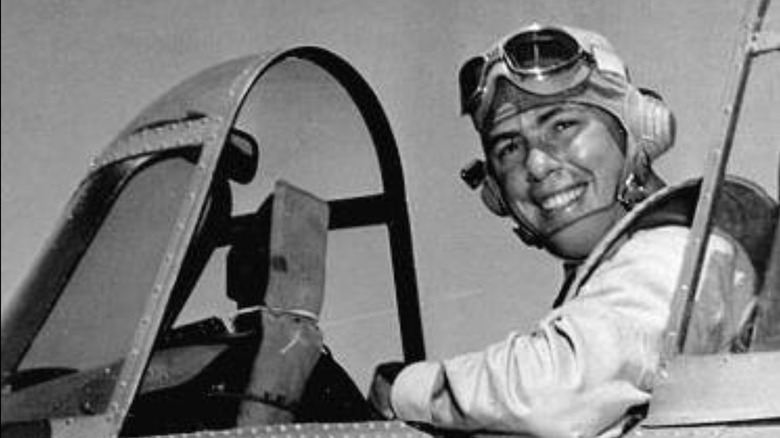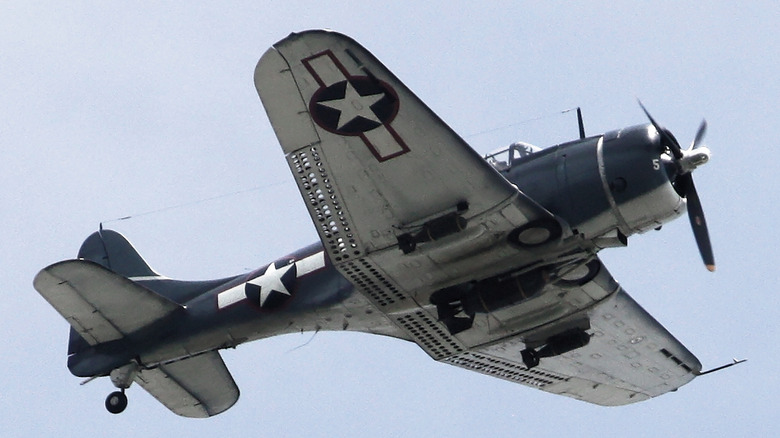How Historically Accurate Is The Movie Midway?
Roland Emmerich's "Midway" hit theaters in November of 2019, centered primarily on the 1942 Battle of Midway Atoll between the Imperial Japanese and United States navies (via Newsweek). Before this battle, the Japanese under Admiral Isoroku Yamamoto had been a seemingly unstoppable force, dealing critical damage to the American, British, and Dutch presence in the Pacific. At Midway, however, four of the aircraft carriers he had used to conquer the seas were sunk within one day, the first three in just six minutes (via Chicago Tribune).
This was a loss that Japan simply couldn't make up, and Emmerich's film shows it with exceptional attention to even minor details. Despite at times falling victim to cheesy performances and Hollywood tropes like implying Japan had the resources to invade the mainland U.S., the film gives decent attention to not only the titular battle but the buildup to it as well (via History vs Hollywood). The attack on Pearl Harbor and the subsequent Doolittle raid on Tokyo are touched on in the first hour of the film, as well as the seldom (in Hollywood) discussed American attacks on the Marshall Islands and the Battle of the Coral Sea.
Emmerich does not shy away from the darker elements of the Pacific War
Emmerich also dives into an aspect of the battle, and by extension the entire Pacific War, that often only receives passing acknowledgement: war crimes. While Midway was a massive tactical and strategic victory for the United States, many U.S. airmen were shot down, and those unfortunate enough to be captured by the enemy were met with extremely cruel ends. Frank O'Flaherty and Bruno Gaido, the pilot and tail-gunner of an SBD Dauntless (pictured above), are shown as having been captured and imprisoned on a Japanese destroyer (via Smithsonian Magazine). According to accounts from the ship's crew, after being questioned the two were tied to oil drums full of water (an anchor in the film) and shoved overboard.
Yet as HistoryExtra reports, the Japanese are not one-dimensional characters in the film, and have their own voices and (from their perspective) acts of battlefield heroism heard and shown as well. "Midway" has overall been hailed for its relative accuracy, sparing no expense in adhering to history, from the chronology of the events to the CG ships and aircraft. The artistic liberties taken in its production, while absolutely present, are relatively minimal for a mainstream production (via USA Today). This especially true when compared to similar films of the past like Michael Bay's "Pearl Harbor," which was weighed down by a love triangle between fictional characters.

